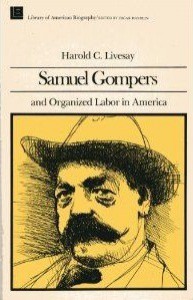Reading progress update: I've read 73 out of 224 pages.

For a biography of a 19th century union leader, I'm finding this to be a surprisingly relevant book. Take this passage, for example:
In other ways Gompers exhibited the enduring American faith in mobility. His whole program of economic improvement aimed at elevating the living conditions of American workers to the point where they enjoyed the same amenities as the country's middle class. He believed too in upward mobility from generation to generation: "Children of employees should be kept from factories, workhouses, and mines." This would enable them to stay in school, and, through education, "our children should be superior to the present generation." He tried to follow this policy within his own family. "[We] wanted our children to have opportunities denied us, and sent the to school as long as we could."
This faith in mobility is being sorely tested today to be sure, yet what struck me is Gompers' evident passion to have his children avoid following his path into industry. It may be an exaggeration, but it seems different nowadays, with the idea of wanting children to do better replaced by the idea of industrial laborers wanting their children to follow them into the factories and mines. When did that change? Was it when the first goal was achieved and those workers attained middle-class status after World War II? The 1960s, when parents resented the choices their children made? Or was it even more recently than that? I feel as though there was a divergence here that could shed some light on many of the political and social issues we face today, only I can't quite pinpoint where it was.






